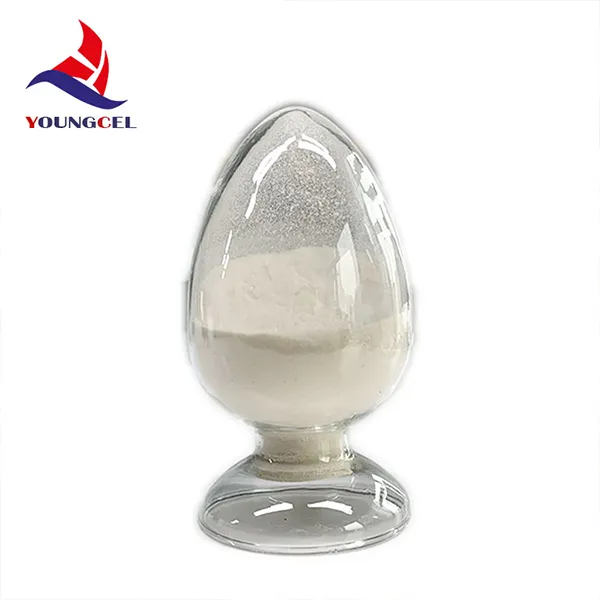Exploring Cellulose Thickener Properties, Applications, and Benefits
Cellulose thickener, derived from the natural polymer cellulose, plays a pivotal role in various industrial and consumer applications. As a key ingredient in a multitude of products, from food items to cosmetics, its thickening properties are highly valued. In this article, we delve into the characteristics, applications, and benefits of cellulose thickener.
Understanding Cellulose
Cellulose is the most abundant organic polymer on Earth, primarily found in the cell walls of plants. It is a linear chain of glucose molecules linked by β(1→4) glycosidic bonds, which contributes to its high tensile strength and structural integrity. To produce cellulose thickener, cellulose is chemically modified or processed to create various types of thickeners, including carboxymethyl cellulose (CMC), hydroxypropyl methylcellulose (HPMC), and others. These modifications enhance its solubility, consistency, and thickening capacity, making it suitable for different applications.
Properties of Cellulose Thickener
Cellulose thickeners exhibit several desirable properties
1. Viscosity Regulation They effectively increase the viscosity of liquids while maintaining stability, allowing for better control of texture in a wide range of formulations.
2. Emulsion Stabilization These thickeners help stabilize emulsions by preventing the separation of oil and water phases, which is particularly important in creams, lotions, and sauces.
3. Water Retention Cellulose thickeners possess excellent water-holding capacity, which aids in maintaining moisture in various products, enhancing their shelf-life and usability.
4. Non-toxic and Eco-friendly As a natural product derived from plants, cellulose thickener is non-toxic and biodegradable, making it an environmentally friendly choice for many industries.
Applications of Cellulose Thickener
Cellulose thickeners are versatile, finding applications across several sectors, including
cellulose thickener

1. Food Industry In food products, cellulose thickener serves multiple purposes. It is often used in sauces, dressings, and ice creams to achieve desired textures and consistency. Additionally, it acts as a stabilizer and helps retain moisture in baked goods and processed foods.
2. Cosmetics and Personal Care In the cosmetic industry, cellulose thickeners are essential for formulating lotions, creams, shampoos, and gels. They provide a smooth texture, enhance product stability, and improve the overall sensory experience for consumers.
3. Pharmaceuticals In pharmaceuticals, cellulose thickeners are used to formulate various dosage forms, including suspensions and gels. They ensure uniform distribution of active ingredients and enhance the viscosity of liquid medications.
4. Industrial Applications Beyond consumer products, cellulose thickeners find use in industrial applications such as paints, coatings, and adhesives, where they help control flow properties and improve adhesion.
Benefits of Cellulose Thickener
The benefits of using cellulose thickener are manifold
- Versatility It can be used in a wide range of formulations, making it a go-to thickening agent for many industries.
- Cost-Effectiveness As a naturally abundant material, cellulose is often more cost-effective than synthetic thickeners, contributing to lower production costs.
- Consumer Acceptance As consumers become increasingly health-conscious, the demand for natural and organic ingredients continues to rise. Cellulose thickener fits these criteria, appealing to health-minded consumers.
- Sustainability Sourced from renewable resources, cellulose contributes to more sustainable manufacturing processes, aligning with global trends toward reducing environmental impact.
In conclusion, cellulose thickener is an invaluable ingredient across multiple industries, providing essential thickening, stabilizing, and moisture-retaining properties. Its natural origins, combined with its versatility and effectiveness, position it as a key component in numerous applications. As we move toward a more eco-conscious future, cellulose thickener stands out as a sustainable and effective choice for manufacturers and consumers alike.
-
Rdp Powder: Key Considerations for Wholesalers in the Building Materials IndustryNewsJul.08,2025
-
Key Considerations for Wholesalers: Navigating the World of Hpmc - Based ProductsNewsJul.08,2025
-
Hpmc Detergent: Key Considerations for WholesalersNewsJul.08,2025
-
Key Considerations for Wholesalers: China Hpmc For Tile Adhesive, Coating Additives, Concrete Additives, and MoreNewsJul.08,2025
-
Crucial Considerations for Wholesalers: Navigating the World of Construction MaterialsNewsJul.08,2025
-
Key Considerations for Wholesalers Sourcing Additive For Cement, Additive For Concrete, Additive For Putty from Additive Manufacturer Shijiazhuang Gaocheng District Yongfeng Cellulose Co., Ltd.NewsJul.08,2025




